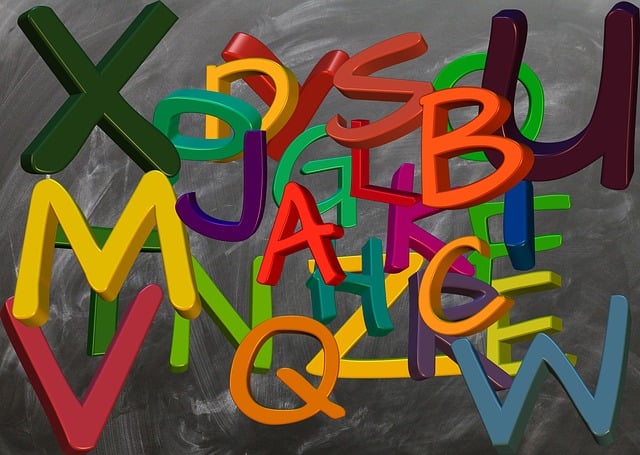UK Play Scripts and Screenplays Translation Services excel in navigating script translation's unique challenges. Employing linguistically skilled experts with theatrical knowledge, these services capture regional dialects and cultural context. They set clear goals, maintain tone and intent, and employ technology for efficient, high-quality translations. Rigorous QA ensures accuracy and cultural adaptation, while a trusted translator network guarantees consistency. Client feedback and reviews drive continuous improvement, ensuring successful localization for UK audiences.
“Streamline your UK play scripts and screenplays translation process with this comprehensive guide. Discover unique challenges, from capturing tone and humor across cultures to ensuring dialogue accuracy and scene fidelity. Learn how technology enhances efficiency, and build a trusted network for regular needs. This article explores expert selection, clear goal-setting, cultural nuances, quality assurance, client feedback, and more, empowering you to deliver high-quality translations tailored for global performances.”
- Understanding the Unique Challenges of Play Script Translation
- Selecting the Right UK Translation Experts for Screenplays
- Setting Clear Goals for Effective Script Localization
- Capturing Tone and Humor in Cross-Cultural Translation
- Ensuring Accurate Dialogue and Scene Fidelity
- Incorporating Cultural Nuances for Authentic Performance
- The Role of Technology in Streamlining Translation Processes
- Quality Assurance Checks: Avoiding Errors in Final Scripts
- Building a Trusted Network for Regular Translation Needs
- Measuring Success: Client Feedback and Project Reviews
Understanding the Unique Challenges of Play Script Translation

Script translation for plays and screenplays presents unique challenges that go beyond simply converting words from one language to another. Unlike general text translation, these scripts rely on nuanced performance elements—such as dialogue delivery, stage directions, and actor interactions—which can be difficult to convey accurately in a new language. Professional UK play scripts and screenplays translation services understand these complexities and employ linguists who are not only fluent but also have a deep understanding of theatrical conventions and cultural context.
Moreover, capturing the essence of regional dialects or slang is another hurdle. Translators must ensure that dialogue sounds natural in the target language while staying faithful to the original intent. They may need to adapt expressions or even invent new terms to mirror the feel of the source script. UK-based translation services specializing in play scripts and screenplays are adept at navigating these intricacies, ensuring that the translated work not only communicates the story but also resonates with audiences in their native language.
Selecting the Right UK Translation Experts for Screenplays

When it comes to translating play scripts or screenplays, choosing the right experts is paramount for maintaining the essence and intent of your original work. Look for UK-based translation services that specialize in this niche area, as they will have a deep understanding of both language and storytelling.
These specialists should possess not only exceptional linguistic skills but also a keen eye for cultural nuances and adaptations suitable for British audiences. With their expertise, you can ensure that your script translates smoothly while capturing the original vision. UK Play Scripts and Screenplays Translation Services should be your go-to choice for achieving precision and quality in your translation project.
Setting Clear Goals for Effective Script Localization

When localizing a script for a specific region, such as the UK market, setting clear goals is paramount to achieving an effective translation process. This involves understanding the cultural nuances and linguistic preferences of the target audience to ensure the adapted script resonates with viewers. A well-defined goal could be to preserve the original intent and tone while rendering the dialogue accessible and engaging for British audiences.
For UK Play Scripts and Screenplays Translation Services, this might include decisions on idiomatic expressions, slang, and cultural references. Translators should aim to maintain the rhythm of the script, ensuring smooth delivery that aligns with the natural flow of speech in the UK. Clear goals also facilitate better project management, resource allocation, and overall quality control, ultimately leading to a seamless localization process.
Capturing Tone and Humor in Cross-Cultural Translation

Translation goes beyond simply replacing words from one language to another, especially in the case of creative content like UK play scripts and screenplays. Capturing the tone and humor intended by the original author is a delicate task that requires skilled translators who understand both languages deeply. Humor, for instance, often relies on wordplay, double entendres, or cultural references that might not translate directly but can be adapted to fit the target audience while retaining the essence of the original wit.
Similarly, tone—whether it’s serious, comedic, sarcastic, or ironic—needs careful consideration. Translators must have a keen sense for language nuances and cultural subtleties to convey the intended emotional resonance accurately. This involves not just choosing equivalent words but also understanding the broader context within which humor and tone operate, ensuring that the translated work resonates with audiences in the same way it did originally. UK play scripts and screenplays translation services that excel in this area are those that employ translators who are native speakers or have a deep cultural connection to the target market, allowing them to navigate these cross-cultural translation challenges effectively.
Ensuring Accurate Dialogue and Scene Fidelity

When translating scripts for film or theatre, maintaining dialogue accuracy and scene fidelity is paramount. This involves more than just word-for-word translation; it requires a deep understanding of cultural nuances, idiomatic expressions, and regional dialects. UK Play Scripts and Screenplays Translation Services employ professional translators with expertise in both the source and target languages, ensuring that the translated script not only conveys the same meaning but also captures the intended tone, rhythm, and style.
To achieve this, these services often include multiple rounds of revision and feedback from both translators and native speakers to refine the translation further. They may also employ tools like translation memory software to maintain consistency across the entire script and other related materials, such as programme notes or promotional copy. This meticulous approach guarantees that the translated play scripts or screenplays remain true to their original essence while seamlessly adapting them for new audiences.
Incorporating Cultural Nuances for Authentic Performance

When translating UK play scripts and screenplays, cultural nuances are paramount to ensuring an authentic performance. A skilled translator must understand not only the literal meaning of words but also the underlying cultural context, idioms, and references that convey subtle emotions and intentions. This involves delving into the source culture, its traditions, and even contemporary issues to preserve the essence of the original work.
Incorporating these nuances requires a fine balance between faithfulness to the source text and artistic adaptation for the target audience. It’s about rendering not just words but also the spirit and style of the original, allowing the translated script to resonate with viewers from different cultural backgrounds. This meticulous process is crucial for creating a seamless and compelling narrative experience that transcends borders.
The Role of Technology in Streamlining Translation Processes

The digital revolution has brought about significant changes in the translation industry, including the seamless integration of technology to streamline processes. When it comes to translating UK play scripts and screenplays, advanced tools and platforms have become invaluable assets for translators. Machine translation software, for instance, can quickly provide initial drafts, saving time and offering a solid foundation for further refinement. These technologies are particularly beneficial for projects involving lengthy texts, ensuring efficiency without compromising quality.
Additionally, memory translation tools and terminological databases allow translators to maintain consistency throughout the entire project. By relying on these tech-driven solutions, UK play script and screenplay translation services can offer faster turnaround times while guaranteeing precise and culturally adapted translations, meeting the exacting standards required in the creative industries.
Quality Assurance Checks: Avoiding Errors in Final Scripts

Ensuring quality is paramount when translating play scripts or screenplays, especially for productions aiming to captivate UK audiences. Professional translation services understand the importance of meticulous Quality Assurance (QA) checks to prevent errors that could alter the narrative flow and impact the final product. These rigorous processes involve multiple rounds of review by experienced translators and editors who scrutinize every line, ensuring accuracy in both meaning and cultural adaptation.
During QA, attention is paid to technical aspects like formatting, stage directions, and dialogue tags, ensuring they are preserved or adapted appropriately for the target language. This meticulous approach guarantees that the translated script not only conveys the original intent but also resonates with the intended audience, making it a seamless experience for UK viewers or performers.
Building a Trusted Network for Regular Translation Needs

Building a trusted network of professional translators is paramount for organisations specialising in UK play scripts and screenplays translation services. By fostering strong relationships with skilled language experts, these businesses can ensure consistent quality and efficiency in meeting their clients’ needs. Regular collaboration allows for the establishment of a dedicated team, familiarised with the nuances of theatrical and cinematic language, capable of accurately conveying artistic intent across languages.
This network becomes a valuable resource, facilitating faster turnaround times and maintaining high standards. Clients benefit from reliable access to expert translators, ensuring their creative works are translated with precision and cultural sensitivity. Such strategic partnerships form the backbone of successful UK play scripts and screenplays translation services, fostering long-term client satisfaction and loyalty.
Measuring Success: Client Feedback and Project Reviews

Measuring success in script translation involves gathering client feedback and conducting thorough project reviews. At top-tier UK Play Scripts and Screenplays Translation Services, post-project evaluations are crucial to understanding client satisfaction. This feedback loop allows translators to refine their approach, improve accuracy, and adapt to unique narrative nuances.
By soliciting input from clients, these services can ensure that translated scripts remain faithful to the original vision while enhancing readability and cultural relevance for diverse audiences. Regular reviews not only highlight areas of excellence but also pinpoint opportunities for growth, ultimately elevating the quality of their UK-based translation offerings.
The seamless translation of UK play scripts and screenplays is no longer a complex, challenging task. By understanding the unique challenges, selecting expert translators, setting clear goals, capturing cultural nuances, leveraging technology, implementing quality assurance checks, and building trusted networks, translation processes can be streamlined effectively. This ensures accurate dialogue, scene fidelity, and authentic performances across diverse cultures. UK Play Scripts and Screenplays Translation Services have evolved to meet the demands of today’s global storytelling landscape, making it easier than ever to share compelling narratives with worldwide audiences.
